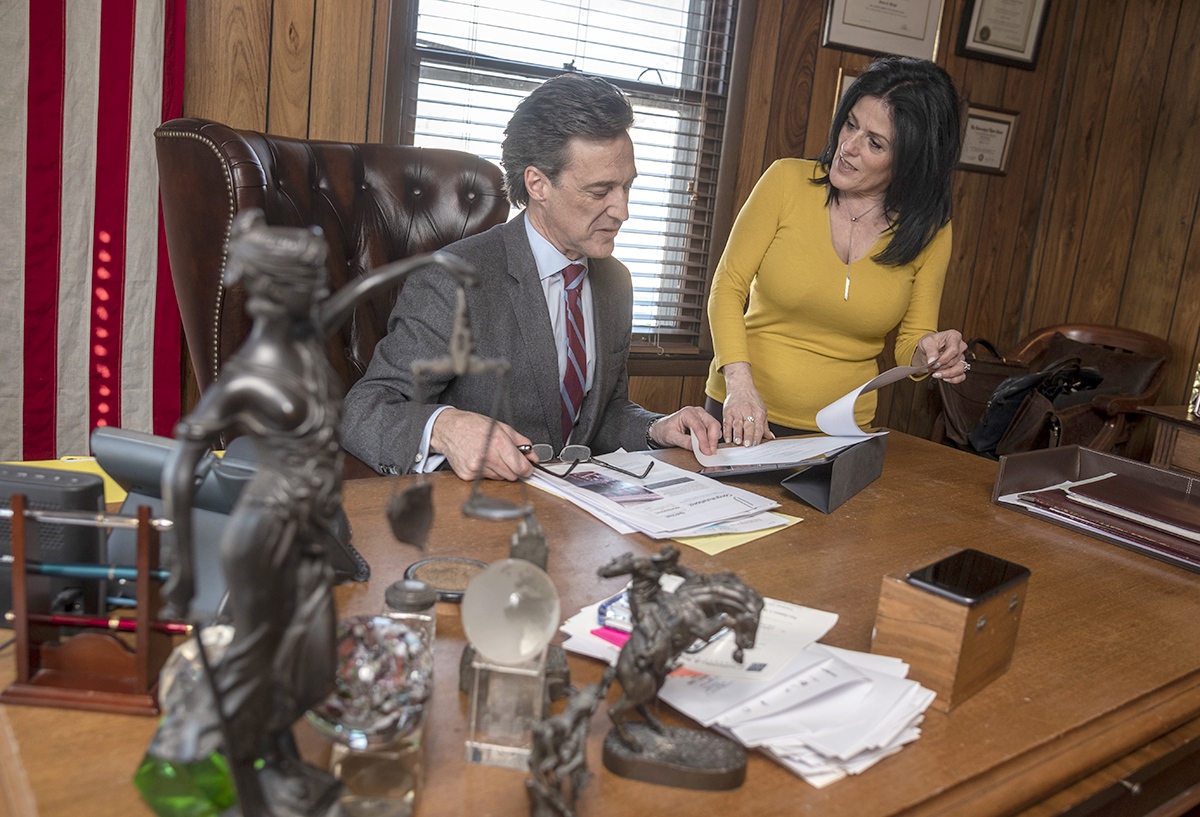Insurance policies, wills, trusts and assets combine to make estate planning a multilayered process.
Add a divorce after decades of marriage, and the complications multiply, say Rhode Island estate planners. Newly blended families and divided finances can turn a single-family estate plan into a virtual apartment building.
The one consistency, experts say, is that the need to plan becomes imperative after a breakup.
“The bottom line is when you get divorced, estate planning is essential,” said Leon Boghossian, a partner and trust and estate attorney at Hinckley Allen & Snyder LLP in Providence.
The need is more pressing after remarriage, he added.
“Down the road if you decide you want to try it again, you have to really pay attention to your estate planning if you have a desire to try to keep your children from your first marriage involved in your estate,” Boghossian said.
‘I’ve had people into their 90s [getting a divorce].’
STEVEN WRIGHT, D’Alessandro & Wright LLC law partner
According to a recent survey by TD Wealth, estate planners across the country say rising divorce rates among couples age 50 and over is complicating the estate-planning process.
The survey also found that “gray divorce” is sparking more family conflict than usually happens within the sometimes-contentious process.
While “gray divorce” is often used to describe separations taking place between couples who are age 50 and older, Steven Wright, an attorney specializing in family law and a partner at D’Alessandro & Wright LLC in Providence, applies the term to people age 65 and up.
That’s because 50-year-olds are often still working, with 15 years to go before retirement. Divorcing when one or both spouses are still generating income can make a significant difference in the planning process, he noted.
“There’s ability to build on whatever you emerge from the divorce with,” Wright said. “Whereas if someone comes in and they’re getting divorced and they’re 67, those chances are probably not there at that point, besides whatever investment income they might have.”
He estimates that divorces between people age 65 and over make up about 10% of his current practice.
“I’ve had people into their 90s [getting a divorce],” Wright said.
In Rhode Island, some attorneys say that couples over age 50 splitting up is becoming increasingly common.
“Anecdotally, yes, there’s definitely been an increase that I’ve seen, and I would imagine that trend will likely continue,” said Brendan Flaherty, senior vice president of wealth management at Janney Montgomery Scott LLC’s Providence office.
Calling it quits after years of marriage can mean that all kinds of legal agreements need to be updated, along with reconfiguring who gets what from an estate.
“One of the other key elements with estate planning is there are certain life insurances and long-term care insurance, which is shared, and that also gets very complicated if there’s a divorce,” Flaherty said. “Let’s say there’s a second-to-die policy in place for estate-planning purposes – that estate planning might need to be completely redone because of the dissolution of that marriage.”
Complications posed by remarriage can be heightened by family tensions among potential heirs, Flaherty added. Along with estate plans that were reworked after a divorce, couples headed into a subsequent marriage often have children from former unions.
“All these things potentially need to be addressed again, and I think that definitely will lead to maybe animosity or jealousy, especially if there’s children from both sides of the marriage,” Flaherty said. “There can be concern [such as], ‘Are we getting cut out of the estate? Is there more of a share going to the new spouse versus the existing family?’ … So all of those things can create problems.”
Post-divorce updates to estate plans are essential with older couples in particular, who likely signed documents decades earlier leaving at least part of the estate to each other, Boghossian said.
Failure to make changes means an unexpected death can take assets away from the family.
“There have been a lot of cases where people get divorced and they’ve left their former spouse on as beneficiary of IRAs or insurance or annuities … and then one of them dies,” Boghossian said. “Who gets that money now, because they never changed it.”
Sometimes, though, age can bring a sense of purpose that defuses confusion or quarrels when it comes to estate planning during a divorce, said Wright, of D’Alessandro & Wright.
“It depends upon what the people are trying to accomplish and what each one of their individual goals are, and how that differs from whatever estate plan they had,” he said. “I think it’s a little more simplified sometimes if you know what the parties’ desires are and what their needs are and whether the estate can meet those needs.”
Regardless of whether agreements are amicable or confrontational, Flaherty, who is licensed in 27 states and works often with clients who originated in Rhode Island and moved away, emphasized the importance of preparation.
“They want to make sure they’re getting advice that is not general but specific to their situation, and be able to have faith that their wishes are going to be actually acted on,” he said. ”
Elizabeth Graham is a PBN staff writer. Contact her at Graham@PBN.com.











